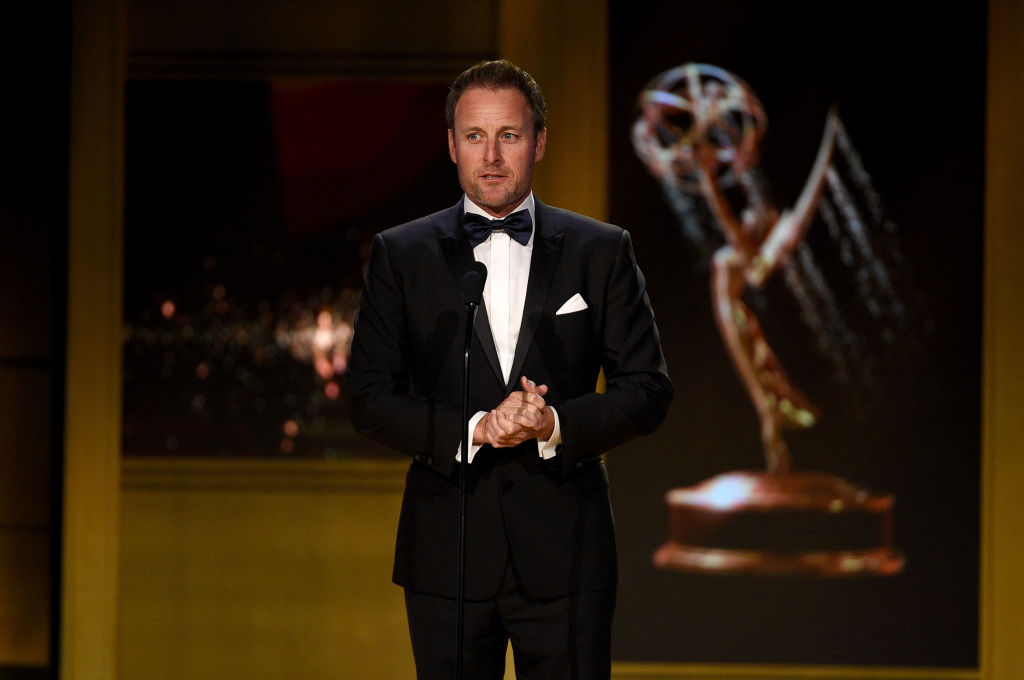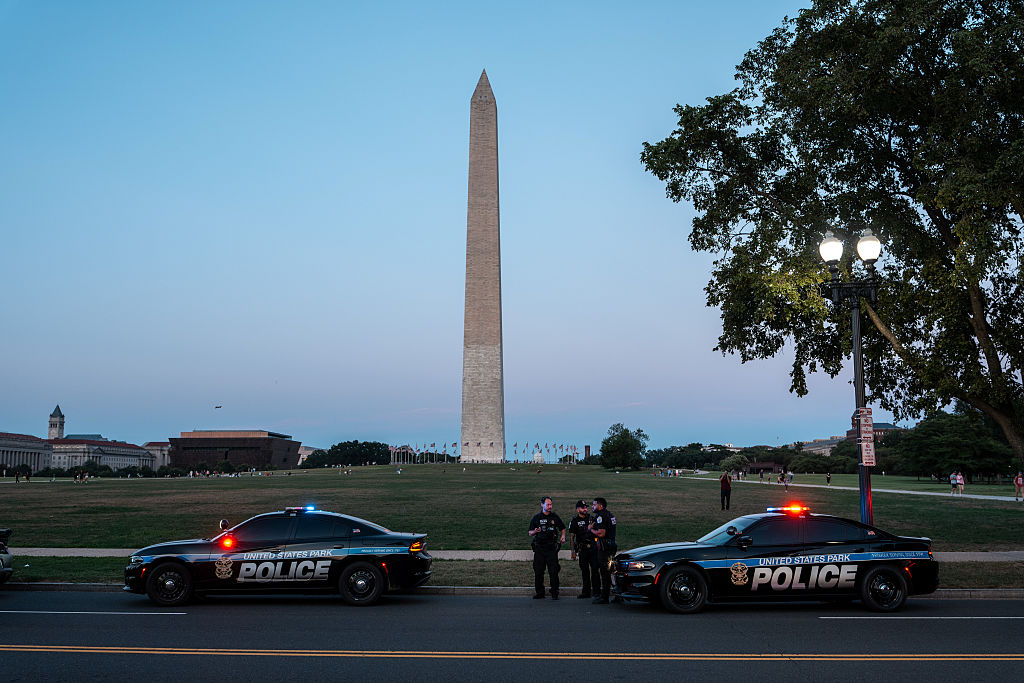For 25 seasons, The Bachelor has marketed a fantasy: one man, 30 women, jetting around the globe on a ‘journey to find love’. The faces change, but the tropes remain: the picnics, the lingerie wrestling matches, the bungee-jumping that heavy-handedly symbolizes ‘falling’ in love. A girl who’s ‘not here to make friends’ steals the bachelor away one too many times and is designated the villain. A girl who’s ‘here for the right reasons’ tearfully tells the bachelor her traumatic past and is rewarded with a rose and fireworks. Finally, after eight weeks, the host Chris Harrison escorts one lucky lady down a long pathway to a dais of candles and flowers, where the bachelor gets down on one knee and proposes.
Harrison has now been escorted from the series, and even getting down on his knees can’t save him.
The Bachelor fantasy has traditionally been controlled by a production team that manipulates its contestants with probing questions and sleep deprivation, and its audience with ‘frankenbiting’ and mood music. A change of musical key can make or break a contestant’s public image: happy music, good person; ominous music, bad person.
But in recent years, social media has ruptured the fantasy. We continue following the contestants once the music has died and the cameras are off. We see the broken engagements and the divorces (three in the last year). We learn that the manufactured villain is actually lovely and that The Bachelorette’s male heartthrob is a clout-chasing dunce.
And sometimes we discover that a beloved member of ‘Bachelor Nation’ has beliefs that do not align with our own.
This season stars Matt James, the first black bachelor. He was also, until a few months ago, a registered Republican, and his (white) mother is believed to be a Trump supporter. Meanwhile, his (white) frontrunner, Rachael Kirkconnell, has been found to have ‘liked’ photos that contain Confederate flags and MAGA hats, to have dressed up in stereotypical Native American attire, and to have attended an Old South Ball at a plantation in 2018.
With the season’s love story on the verge of imploding, Harrison attempted damage control. In an interview last week on Extra with Rachel Lindsay, the show’s first black bachelorette, he denounced cancel culture and asked for ‘grace’ for Kirkconnell, clumsily trying to situate her past actions within a landscape of ever-shifting cultural mores: ‘The woke police is out there and this poor girl Rachael has just been thrown to the lions.’
On cue, the woke police and the lions came for Chris Harrison. The stars of the Bachelor franchise took to their Instagram accounts to condemn his words, with some sharing a petition calling for him to be fired. Fans encouraged each other to ‘pay reparations for the emotional energy spent’ by Venmo-ing black members of Bachelor Nation. Harrison issued one apology, and then another. He announced he would be ‘stepping aside for a period of time’.
There is no denying that the Bachelor franchise has a race problem. The problem was obvious to me already as a little girl watching the show. The black contestants rarely made it past week three and almost never had compelling storylines. Kirkconnell may be a scapegoat (indeed, photos have since surfaced of other members of Bachelor Nation at similar antebellum-themed parties), but she is a scapegoat for some valid concerns. Even this season, with the most racially diverse cast yet, the white contestants disproportionately dominate the screen time.
But Harrison’s apology is chilling: ‘I invoked the term “woke police”, which is unacceptable.’ Have the lions so successfully brainwashed him in the span of a few days? It’s hard to know what’s worse: if he means what he says here, or if he doesn’t.
More chilling still are the denunciations from his ‘Bachelor Nation family’ — former contestants who have previously acknowledged that they owe their careers, relationships and even children to his cupid-ity. Although there are some who have remained silent (which, admittedly, cannot be easy when thousands of fans are barraging them with calls to condemn Harrison), not one star has stood up for their ‘friend’ publicly.
Not even Harrison’s girlfriend, Entertainment Tonight host Lauren Zima, who has hitherto proudly flaunted their relationship to anyone who will listen. ‘What Chris said was wrong and disappointing,’ she posted to Instagram. ‘Defending racism can never happen. Accountability comes first, what’s next is learning and growth.’
Bari Weiss has written that Twitter ‘is now editing the New York Times’. Well, Twitter is also now producing The Bachelor. The producers have lost control of their narrative: the villain this season turns out to be Chris Harrison.
It is, perhaps, difficult to feel sorry for Harrison. Unlike most victims of cancel culture, he could retire tomorrow without the least financial concern. But we should feel sorry for ourselves. Sure, The Bachelor isn’t quality television but, like football, it’s a rare civic religion that manages to bind together different strands of America. Coastal elites and country folk alike delight in watching men in helmets fight over pigskin and women in ballgowns war over roses.
The secret to the show’s success is walking a fine line between conservativism and progressivism. The Bachelor won’t propose to a woman without first asking her father’s permission (conservative!), but he invariably asks four different fathers for their permission and sleeps with three of their daughters in ‘fantasy suites’ (progressive!).
When even The Bachelor becomes embroiled in the culture wars, we risk losing yet another unifying force for our country — absurd though it may be. The breakdown of Bachelor Nation is both a symptom and, I fear, a further cause of the breakdown of America.

























